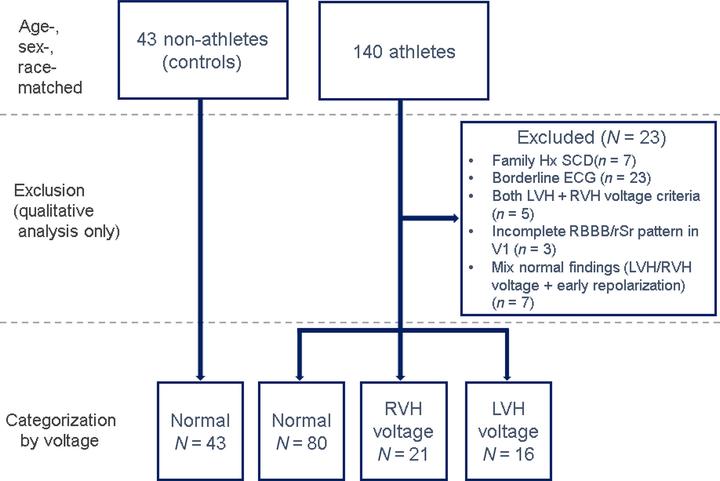
Abstract
Background: Global electrical heterogeneity (GEH) is associated with sudden cardiac death (SCD) in adults of 45 years and above. However, GEH has not been previously measured in young athletes. The goal of this study was to establish a reference for vectorcardiograpic (VCG) metrics in male and female athletes.
Methods: Skiers (n=140; mean age 19.2±3.5years; 66% male, 94% white; 53% professional athletes) were enrolled in a prospective cohort. Resting 12-lead ECGs were interpreted per the International ECG criteria. Associations of age, sex, and athletic performance with GEH were studied.
Results: In age and training level‐adjusted analyses, male sex was associated with a larger T vector [T peak magnitude +186 (95% CI 106–266) µV] and a wider spatial QRS‐T angle [+28.2 (17.3–39.2)°] as compared to women. Spatial QRS‐T angle in the ECG left ventricular hypertrophy (LVH) voltage group (n = 21; 15%) and normal ECG group did not differ (67.7 ± 25.0 vs. 66.8 ± 28.2; p = 0.914), suggesting that ECG LVH voltage in athletes reflects physiological remodeling. In contrast, skiers with right ventricular hypertrophy (RVH) voltage (n = 26, 18.6%) had wider QRS‐T angle (92.7 ± 29.6 vs. 66.8 ± 28.2°; p = 0.001), larger SAI QRST (194.9 ± 30.2 vs. 157.8 ± 42.6 mV × ms; p < 0.0001), but similar peak SVG vector magnitude (1976 ± 548 vs. 1939 ± 395 µV; p = 0.775) as compared to the normal ECG group. Better athletic performance was associated with the narrower QRS‐T angle. Each 10% worsening in an athlete’s Federation Internationale de’ Ski downhill ranking percentile was associated with an increase in spatial QRS‐T angle by 2.1 (95% CI 0.3–3.9) degrees (p = 0.013).
Conclusion: Vectorcardiograpic adds nuances to ECG phenomena in athletes.